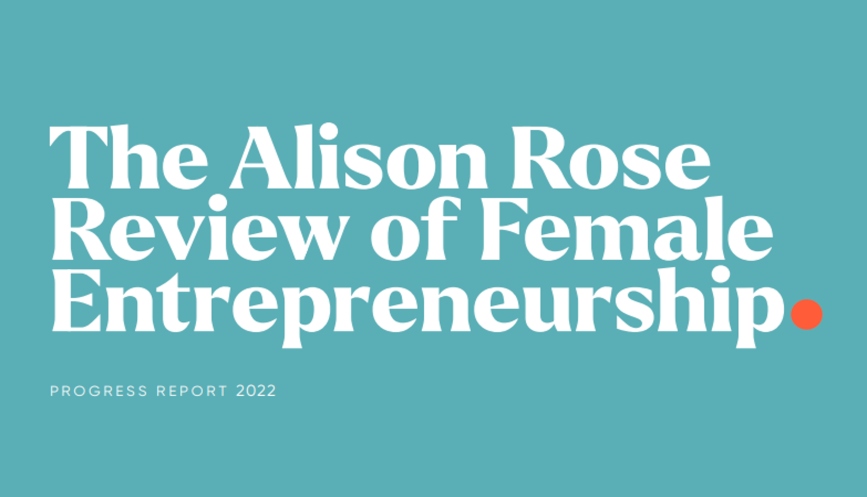Introduction: The Power of Breaking Barriers
If you’ve ever dreamed of launching a business but felt invisible walls around you, you are not alone. Across the globe, female entrepreneurs face unique hurdles — financial, cultural, even psychological. The Rose Review has burst onto the scene to smash those barriers and chart a new path for women-led businesses. But how exactly is it changing the game? Let’s dive into the review, its eye-opening findings, and the personal stories behind the statistics.
What Is The Rose Review?
Commissioned by the UK government and led by Alison Rose, CEO of NatWest Group, The Rose Review is a landmark analysis of female entrepreneurship in the UK. Originally published in and updated periodically since, it shines a spotlight on the untapped economic potential of women founders and, more importantly, maps actionable strategies for real change.
- Report Origin: Initiated by HM Treasury in the UK.
- Lead Author: Alison Rose (now Dame Alison Rose), CEO of NatWest Group.
- Key Goals:
- Highlight challenges faced by UK female entrepreneurs
- Quantify the economic impact of advancing gender parity in business
- Propose systemic reforms to foster women-led business growth
Facts & Figures: Why the Rose Review Matters
| Key Metric | Insight |
|---|---|
| Economic Uplift | £250B could be added to the UK economy if women launched and scaled companies at the same rate as men |
| Start-up Gap | Only in UK entrepreneurs are women |
| Finance Hurdles | 5.6% of UK equity investment goes to female-founded businesses |
| Ambition & Growth | Women are less likely to scale businesses or seek high-growth models, often due to structural barriers |
Real Stories: From Obstacles to Opportunity
Meet Emma Jones, founder of TechMums. For years, Emma struggled to secure venture capital, often underestimated by male peers and investors. But after connecting with networks highlighted in The Rose Review — like the Women Angels Investment Forum and NatWest’s Back Her Business initiative — she secured her first major funding round. Today, TechMums mentors hundreds of women into digital careers annually.

Meanwhile, Rajinder Gill, a Midlands-based restaurateur, faced a different battle: balancing cultural expectations and scaling a business as a mother of two. Access to tailored accelerator programs cited in the Rose Review gave her both mentorship and a new support system. Rajinder’s business, once local, now franchises across three cities.
Key Barriers Identified by the Rose Review
- Lack of Funding: Persistent gender bias in venture capital and lending decisions.
- Access to Networks: Fewer mentoring, sponsorship, and support opportunities for women.
- Role Models: Underrepresentation of high-visibility female entrepreneurs in the media.
- Structural Obstacles: Care responsibilities and flexible work disadvantages.
- Confidence Gap: Many women underestimate their abilities, citing imposter syndrome as a blocker.
The Rose Review in Action: Concrete Initiatives
- Investing In Women Code: Over financial organizations pledged to increase transparency around gender-data and deliver more equitable access to finance.
- Female Entrepreneurs Mentoring Scheme: Businesses like NatWest and Amazon UK joined forces to expand mentorships across the UK, resulting in thousands of new mentor-mentee matches.
- Government-backed Funding: The UK government launched targeted funding pots and partnered with venture capital funds to prioritize female founders.
- Events & Community-Building: Networks such as the Rose Review Women’s Business Taskforce provide forums for learning, sharing, and celebrating success.
Update: What’s Changed?
Since the original publication, remarkable progress has been made:
- Women-led start-ups saw a 25% increase in seed investment since 2019.
- The number of senior women investors on deal teams at major VC firms has doubled.
- National campaigns promoting women in STEM resulted in a record number of female tech founders in 2024-2025.
Yet the gap remains. Female founders continue to cite challenges — especially access to later-stage growth capital and being heard in boardrooms where decisions happen.
Case Study: The Digital Fashion Breakthrough
Case:Elisa Laurent founded ThreadLab in 2021, an AI-powered sustainable fashion marketplace. Initially rebuffed by traditional banks, Elisa leveraged the Rose Review’s partner accelerator and entered the NatWest “Back Her Business” grant competition. Her platform now boasts 500, users, and ThreadLab won “Best Digital Retailer” at the UK Business Awards. Elisa attributes much of her breakout to Rose Review-funded resources and an “iron sisterhood” of fellow female founders.
International Influence: The Rose Effect Beyond the UK
- Canada: Policy-makers cited the Rose Review when launching the Women Entrepreneurship Strategy, leading to a C$2B investment across Canadian provinces.
- Australia: The review inspired the “Boosting Female Founders” initiative, streamlining grants and simplifying red tape for aspiring entrepreneurs.
- EU: The European Investment Bank referenced Rose data in shaping their own gender-lens investing criteria.
It’s now a global rallying cry.
Expert Tips: Starting and Scaling as a Female Founder (Inspired By The Rose Review)
- Build Your Network: Seek mentors or join programs spotlighted in The Rose Review like NatWest’s mentoring schemes or the Women Angels network.
- Document Your Wins: Maintain detailed records of business milestones, as well as funding applications — shows traction and boosts confidence.
- Pitch With Data: Use concrete statistics (like those from The Rose Review itself) in investor pitches to counter unconscious bias.
- Stay Visible: Share your journey online, speak at local events, become the role model you wish you’d had.
- Collaborate: Forge partnerships with other women-led businesses — community trumps competition.
FAQ: Frequently Asked Questions About The Rose Review
- Q: Who commissioned The Rose Review?
- A: HM Treasury, UK Government, in partnership with leading industry figures.
- Q: What has The Rose Review achieved since launch?
- A: Spurred the Investing in Women Code, inspired new funding and mentorship schemes, and contributed to measurable growth in UK women-led businesses.
- Q: Is the Rose Review relevant outside the UK?
- A: Absolutely. Its findings have shaped female entrepreneurship policies in Canada, the EU, Australia, and beyond.
- Q: Where can I access support as a female founder?
- A: Check out NatWest’s Back Her Business, Female Founder Office Hours, and the government’s Start-Up Loans program.
- Q: I’m facing bias or stigma. What should I do?
- A: Connect with others through initiatives spotlighted by The Rose Review. Peer support and mentorship are proven antidotes to isolation.
Conclusion: The Road Ahead — And Your Next Move
The Rose Review is not just another white paper gathering dust. It’s a wake-up call with teeth: revealing systemic inequities, sparking policy reforms, and — most importantly — turning hope into real opportunity for women everywhere.
Women are building ventures that shape tomorrow’s economy. Whether you’re just considering your first move or you’re already scaling up, let the lessons, networks, and solidarity inspired by The Rose Review remind you: barriers are meant to be broken. The future is female — and it’s waiting for you to step up.



